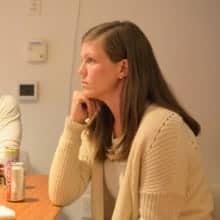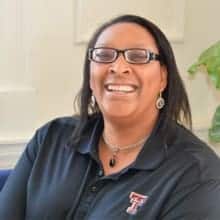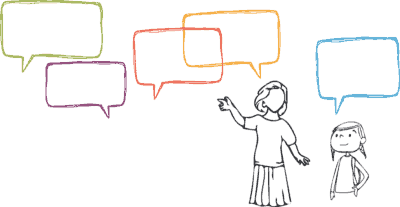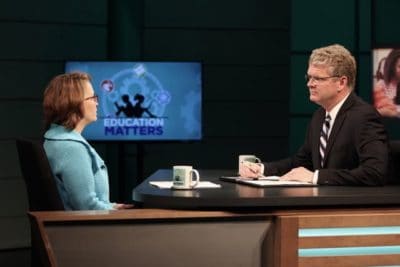
What is global education and why does it matter?
Our world continues to become more interconnected. Through advances in technology, information can be shared almost instantaneously and goods may be delivered across the globe in just days. Geography is no longer a boundary to sharing information. The increasing interconnectedness of the world is the result of globalization. Globalization is normally referred to in an economic sense, however, is immensely applicable to the education setting, too.

Global education is essential to meeting the needs of our future workforce. The skills once required of our workforce have shifted, and today, global education means teaching the competencies and skills needed to succeed in an increasingly globalized word. According to the Asia Society, global competency may be defined as the capacity and disposition to understand and act on issues of global significance.
In the classroom, global education means providing students with the opportunity to explore the content and concepts that enable them to consider a variety of perspectives different from their own, communicate their ideas cross-culturally, and take action on meaningful global issues. True global competence is embracing these skills as a means to navigate the world. This competence is important for the future of our economy, as our workforce is more globally connected than ever before in history. To become globally competitive, students must be trained in these global competencies. Without these skills, we will not be able to promote the U.S. effectively as a global workforce.
How to implement global learning in your classroom
Asking educators to teach students their content area standards and do it with a global lens while also maintaining alignment with their various district-mandated curricula? That’s a large undertaking. When tasked with integrating global learning themes and global competency skills into existing curricula, teachers feel varying levels of comfort and capability. Emotions range from dread and anger to brimming-creativity and excitement.
Regardless of where you fall in this range, global learning and education are here to stay. As we look toward the future, we must find a way to teach the global knowledge and skills that will be required of the next generation of leaders. Explore the tips below for the various levels of competency in integrating global learning into the classroom.
Novice
Another thing to incorporate into your instruction? Add it to the list. You know that global education is important, but feel like you don’t know where to begin.
Tip: Start small.
If you identify as a novice in incorporating global topics into your content area, start small. Begin by identifying a global theme or issue that you find important or meaningful. Consider what you want students to learn about that theme or issue and craft one or two essential questions around that. Finally, consider how you could incorporate this theme into just one or two of your unit lessons. How can you pair your unit curriculum with a global issue to create a meaningful global learning experience for students?
Example: Middle school math
|
Global Theme: |
Water scarcity |
|
Essential Questions: |
Why is water scarcity an issue around the world, specifically in places like South Sudan? How can the issue of water scarcity be addressed? |
|
Curricular Standard: |
Math Common Core State Standard 7.G.B.: Solve real-world and mathematical problems involving area, volume, and surface area of two- and three-dimensional objects composed of triangles, quadrilaterals, polygons, cubes, and right prisms. |
|
Global Lesson: |
Teacher provides students with information about the water crisis in South Sudan and the solutions proposed to alleviate the problem, such as the construction of rainwater catchment structures. Students then work to determine the volume of water that may be held inside of a catchment, practicing the skills associated with the Common Core standard. |
Intermediate
You have experienced success incorporating global topics into your content area, but are looking for ways to enhance your lessons and units to provide more authentic practice with global competencies and skills.
Tip: Take your lessons to the next level to create global-infused units.
If you identify as intermediate in your global integration capability, consider how you can enhance your existing lessons to create full units that include a comprehensive study of a particular global theme or issue. Determine the culminating task students will undertake to demonstrate their understanding of the global theme or competency and design multiple educational experiences that will lead students to that understanding.
Example: Middle school language arts
|
Global Theme: |
Human rights |
|
Essential Questions: |
What are the rights that should be guaranteed to all humans in our world? In what ways does literature reflect reality? |
|
Curricular Standards: |
RL.7.1: Cite several pieces of textual evidence to support analysis of what the text says explicitly as well as inferences drawn from the text. RL.7.2: Determine the theme of a text and analyze its development over the course of a text; provide an objective summary of the text. RL.7.3: Analyze how particular elements of a story or drama interact |
|
Global Unit: |
Choose an anchor literary text that connects with the global theme of human rights. Consider works of historical fiction that provide students with information about events in world history in which major violations of human rights occurred. Options include texts such as Number the Stars by Lois Lowry, or A Long Walk to Water by Linda Sue Park. Read the text and practice various literacy skills associated with state standards. Rather than reading the literary text in isolation, ground your discussion for the unit in human rights by prompting students to read and interpret the The Universal Declaration of Human Rights. Push students to apply their knowledge of the rights outlined in the declaration to identify the violations of human rights in the piece of literature. Consider having students connect to their present-day lives through the exploration of informational and other texts that grapple with issues pertaining to human rights. |
Pro
You consistently incorporate global topics into your content area and you have strong unit plans that reflect global themes and issues.
Tip: Think globally, act locally.
If you identify as a pro in your global integration capability, you have mastered intricate balance of fusing your content area standards with global learning themes. Take your instruction to the next level by prompting students to take action on the global knowledge and skills they have acquired. Encourage your students to “think globally, act locally.” How can your students act on a local level to influence issues that are global in scale?
Example: High school science
|
Global Theme: |
Pollution |
|
Essential Questions: |
How do humans change the environments which they inhabit? What is the generational human impact on the environment locally? Globally? |
|
Curricular Standard: |
Bio.2.2: Understand the impact of human activities on the environment (one generation affects the next). |
|
Global Unit: |
Explore a global pollution issue, such as the disposal of non-recyclable materials on continents around the globe. Explore what ground pollution looks like in several different countries to develop a strong understanding on the topic. Once students have explored the content, invite them to think about the impact of ground pollution on a local level. Instruct students to conduct research on where their non-recyclable waste goes and the impact it has on their local environment. Then, task students to design a plan for your school to reduce the amount of waste or non-recyclable materials exported from your cafeteria. Have students present their plans to school leaders or local district officials to give students the opportunity to pitch their idea to an authentic audience. |
UNC World View Resources
Still looking for global integration inspiration or ideas? Check out the resources crafted by the UNC World View OVERBook Fellows. The fellows crafted global lessons and study guides surrounding global themes and issues, including: climate change, consumption, human rights, nature’s rights, pollution, and water. All study guides incorporate the use of images from the Population Institute’s OVERbook. Materials span content areas and grade levels, ranging from kindergarten to the postsecondary level.
Climate change
- K-5: Picturing a Sustainable Future: Investigating the Causes and Effects of Climate Change Through
Photographs - 9-12: Global Climate Change: Exploring the Impacts of Overpopulation
- Postsecondary: Pseudoscience or Science: Examining Global Climate Change Through Empirical Evidence
Consumption

- K-5: FOOTPRINTS — BIG, SMALL and GONE: Lessening Environmental Impact by Reducing Reusing,
Recycling and Refusing - 6-8: Consumption study guide
- 9-12: Perhaps Less Is More
- Postsecondary: Consumption of Resources; Consumption of News
Pollution
- K-5: TALKIN’ TRASH: Perception, Pollution, and Action-Taking!
- 6-8: Pollution study guide
- 9-12: Wasteland narratives study guide
- 9-12: Density word problems
- Postsecondary: The Psychology of Pollution
Human rights

- K-5: Access to Clean Water – Everyone’s Right, Right?
- 6-8: Science-fiction or Real Life? Exploring Human Rights Through Dystopian Literature
- 9-12: Life, liberty study guide
- 9-12: Dystopia now study guide
- Postsecondary: Crossroads: The Intersection of Psychology and Human Rights
Water
- K-5: Water Threats Around the World Affect More Than Just Water
- 6-8: Literature Reflects Reality: Exploring Water Scarcity Through Visual and Literary Analysis
- 9-12: Wet and wild study guide
- Postsecondary: Evaluating the World’s Disproportionate Consumption of Water Through Research and Self Examination
Nature’s rights

- K-5: Yours, Mine, and Nature’s: Understanding our Role in Protecting the Rights of Nature”
- 9-12: Nature v. Overpopulation: Justice for Mother Nature
- Postsecondary: Human Rights and the Rights of Nature — Analyzing Cause and Effect Relationships
Access the full suite of study guides, PowerPoints, student handouts, and supporting materials here.





